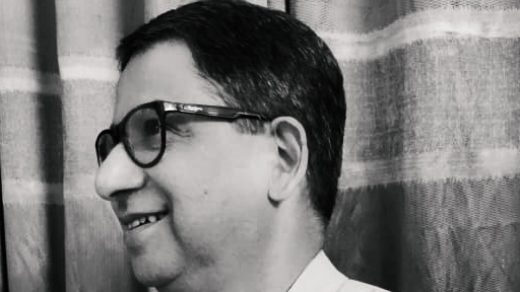Delays, Disputes, and the Growing Concern for Governance: Citizens Ask When the State Will Resolve the Ongoing Issues
By: Dr. Danish Lambe
Maharashtra’s Municipal Corporation elections have been delayed for an extended period, leaving many major cities, including Mumbai and Pune, without elected representatives. The public’s frustration is growing, with many asking when these crucial elections will finally occur. The reasons behind the delays are complex and multifaceted, revealing deep-rooted issues within the state’s political and administrative frameworks.
Why Are the Elections Being Delayed?
The delays stem from a combination of factors, each contributing to the uncertainty:
- Delimitation Disputes:
The redrawing of ward boundaries, particularly in Mumbai, has resulted in significant delays. Conflicting decisions by successive state governments, coupled with subsequent legal challenges, have stalled the election process. The Bombay High Court has intervened multiple times, but a final resolution remains pending. This issue remains a major obstacle to setting an election date. - OBC Reservation Controversy:
The implementation of reservations for Other Backward Classes (OBC) in local elections has been another major point of contention. The Supreme Court has repeatedly ordered that elections proceed without waiting for the state to finalize its reservation policies. However, the process has been slow, adding further delays to the electoral schedule. - COVID-19 Pandemic:
The global pandemic severely impacted the election timeline. The logistical challenges of conducting elections during a public health crisis, along with the necessity of ensuring public safety, initially led to postponements. While the immediate threat of COVID-19 has lessened, its impact on the electoral process has been lasting. - Political Instability:
Maharashtra’s political landscape has experienced volatility, particularly with the shift in power from the Maha Vikas Aghadi (MVA) coalition to the new government led by Eknath Shinde. These changes have disrupted the administrative processes necessary for conducting elections. - Litigations and Court Orders:
In addition to the delimitation and OBC reservation issues, elections have been delayed due to various legal challenges. Multiple litigations have contested different aspects of the election process, leading to judicial interventions that have further slowed proceedings. - Administrative Delays:
The bureaucratic process of finalizing voter lists, setting up polling stations, and managing other election-related infrastructure has faced significant delays. The frequent changes in ward boundaries and reservation policies have required repeated administrative revisions, further postponing the elections. - Pressure from Political Parties:
Reports suggest that some political parties may prefer to delay the elections to improve their electoral prospects. However, it’s important to note that these claims are speculative and have not been confirmed by official sources.
The Public’s Growing Concern
Citizens across Maharashtra are increasingly voicing their frustration. The absence of elected representatives raises serious concerns about the effectiveness of local governance. Municipal bodies are responsible for essential services such as water supply, waste management, and public health, which directly impact daily life. Without elected officials to oversee these services, there are growing concerns about accountability and the quality of governance.
When Will the Issues Be Resolved?
The central question remains: When will these elections be held? The public demands transparency and prompt action. The courts have already expressed their frustration with the delays, and there is increasing pressure on the State Election Commission (SEC) to announce a firm election date.
However, resolving these issues is not straightforward. The ongoing legal battles, particularly over delimitation and OBC reservations, need to be concluded before a clear path forward can be established. Additionally, the state government must prioritize addressing the administrative and logistical challenges that have delayed the elections.
Conclusion: A Call for Transparency and Action
The people of Maharashtra deserve clear answers and a concrete timeline for when these elections will finally be held. The prolonged absence of elected representatives threatens the very fabric of local democracy. Citizens are right to demand that their voices be heard, and that those in power be held accountable for restoring municipal governance to the hands of elected officials as soon as possible.
Disclaimer:
The views and opinions expressed in this article are based on the current information available and reflect observations of the ongoing situation. Any speculative content is presented as analysis and not a definitive assertion of fact. Given the ongoing legal proceedings and potential changes in administrative decisions, the situation surrounding the municipal elections in Maharashtra is dynamic. Readers are encouraged to follow future developments for the most current information.










